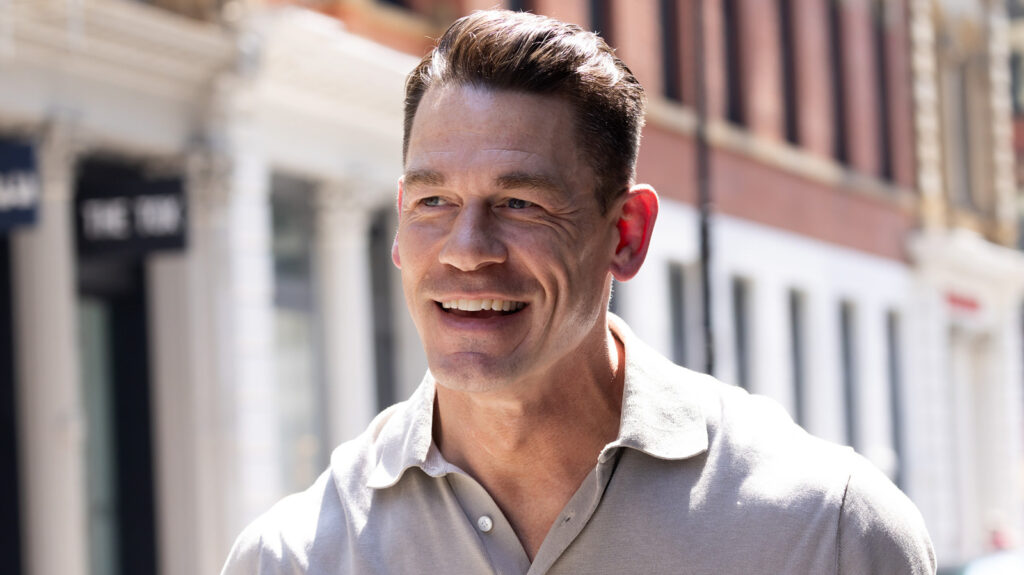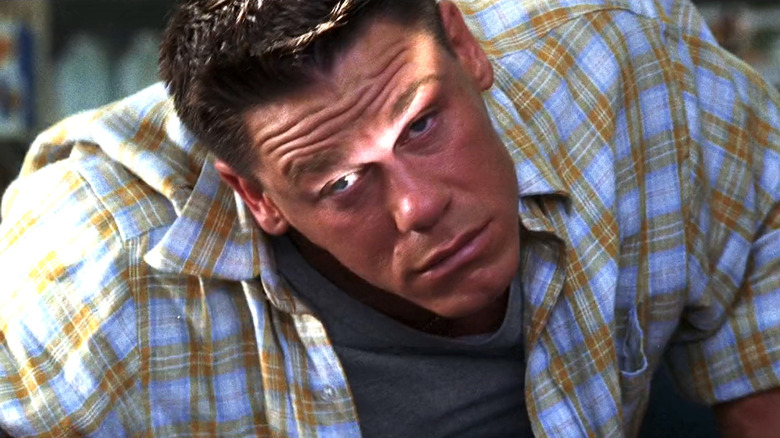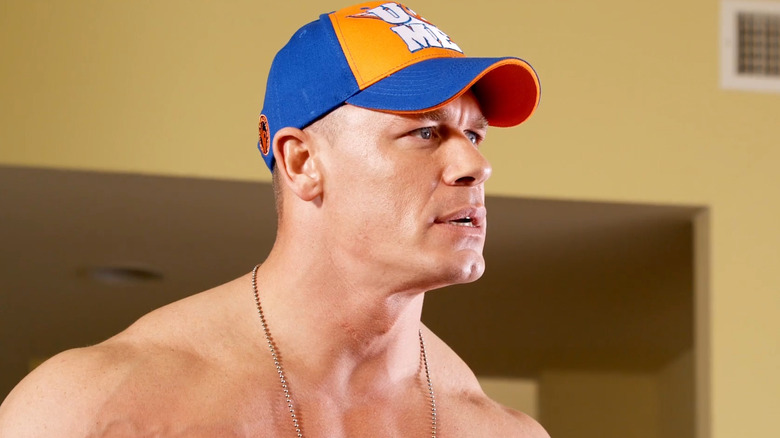John Cena isn’t like many movie stars. He heeded the wisdom of a classic Oasis song and refuses to look back in anger at his career — unlike Ryan Reynolds who openly lists the role he regrets taking. Instead, Cena remains complimentary of early roles that he has every right to trash. Even so, can the positive-minded actor put in a good word for “Fred: The Movie,” a notoriously rotten film? Yeah, he can.
“Fred: The Movie,” based on the character Fred Figglehorn from Lucas Cruikshank’s YouTube channel, isn’t exactly revered like “Paddington” or “Citizen Kane.” This 2010 comedy holds a rare 0% critical approval rating on Rotten Tomatoes. In the film, Cena plays Dad Figglehorn, Fred’s jacked imaginary father who pops up when Fred needs words of wisdom or affirmation. It’s a role that Cena reprised for the sequels, “Fred 2: Night of the Living Fred” and “Fred 3: Camp Fred.”
Despite the negative reaction toward the series, especially “Fred: The Movie,” Cena credits the career he’s had to these films. “It wasn’t until the ‘Fred’ movies, where I could parody myself — and that was kind of the start of all that — where I could have fun with the process and expect nothing out of it,” Cena told YouTuber Chris Van Vliet. “Where it’s like, ‘Stop looking at this as a vehicle, and start looking at this as creative fun.’ And then I fell in love with falling into other characters.”
John Cena said his earlier movies were business decisions
“Fred: The Movie” wasn’t John Cena’s first foray into films. By the time he flexed as Dad Figglehorn, he had already established himself with two leading roles in WWE Studios productions, “The Marine” and “12 Rounds.” The former, which is John Cena’s acting debut, launched an awful franchise that spawned more sequels than common sense would dictate.
Yet, “The Marine” and “12 Rounds” were exactly what you would have expected from Cena’s career in the 2000s. On WWE television, he was the heroic babyface who overcame adversity and stood for hustle, loyalty, and respect. Thanks to his impressive physique and popularity among the fanbase, it made all the sense in the world to turn Cena into a bona-fide action star. To paraphrase all those LinkedIn lunatics: there was an opportunity for synergy here.
For Cena, though, those earlier movies were made for the wrong reason. “I started out doing movies as a business decision,” Cena said to Chris Van Vliet. “Vince [McMahon, former WWE CEO] was like, ‘Hey, I need you to go to Australia,’ like two weeks before shooting and explained that if we can bolster WWE Studios, we will bolster live event attendance, so we can do larger buildings and we can be more widespread. That’s the wrong approach to take. In turn, I did a lot of bad movies.”
The influence of Fred: The Movie is clear in Cena’s career
While John Cena has done better films since “Fred: The Movie,” it isn’t too difficult to see his point about its influence on his career. Cena could have easily turned into another all-action superstar, following in the footsteps of Dwayne Johnson and other wrestlers who successfully built acting careers based on their physique, but how would that have differentiated him?
Instead, Cena played against type. Rather than be seen as the hulking bruiser who breaks noses, wears tight vests, and cracks one-liners in straight-to-VOD fodder, he understood that his personality — especially his comedic timing — was his biggest asset, not his muscles. Subsequently, this pivot succeeded in him landing the role of Peacemaker in “The Suicide Squad,” the Kenmaid in “Barbie,” and Rod in “Ricky Stanicky,” which is the most unheralded comedy of the 2020s, and deserves to be added to the Criterion Collection. All this is thanks to a silly role in “Fred: The Movie.” Who would have thunk it?



